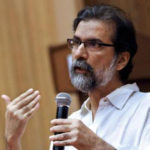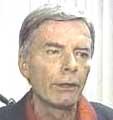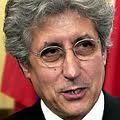Azadi! Freedom!
“Azadi!”—Urdu for “Freedom!”—is the slogan of the freedom struggle in Kashmir against Indian occupation. Abroad, New Delhi promotes itself as the world’s largest democracy. At home, the picture is quite different. India’s ruling Bharatiya Janata Party, the BJP, led by Narendra Modi espouses Hindutva, Hindu nationalism. It promotes Islamophobia and stifles dissent. What it wants from largely Muslim Kashmir is submission. To ensure that it has deployed hundreds of thousands of troops making the Himalayan region the most densely militarized zone on earth. Kashmir is an unresolved issue dating back to the partition of India in 1947. For decades Kashmiris have been in revolt against Indian rule. Many tens of thousands have been killed. Many more have been displaced. What do Kashmiris want? Azadi.
Interviewed by David Barsamian.
Speaker

Sanjay Kak
Sanjay Kak is a New Delhi-based, award-winning independent documentary filmmaker and journalist. His films include How We Celebrate Freedom, Words on Water and Red Ant Dream. He is editor of the books Until My Freedom Has Come: The New Intifada in Kashmir and Witness.





Colorado Listener –
Many heroes have fought and died in the struggle to free Kashmir, Jammu and Ladakh from India’s iron fist. Sanjay Kak fearlessly battles this brutal occupation through his journalism and award-winning filmmaking. In this wonderfully wide-ranging and articulate interview with David Barsamian (himself incredibly knowledgeable about the situation), Kak outlines the history and increasingly deep tragedy of illegal control, militarization and assaults on free expression, peaceful assembly and basic human rights. The once autonomous region may seem obscure to many in the West, but as this revealing, energetic conversation reminds us, the violation of the sovereignty of any people anywhere defiles all people everywhere.
Listener PA –
Sanjay Kak is one of the best-informed and most eloquent commentators on the geo-political crisis that is Kashmir. David Barsamian leads him into a powerful discussion of Kashmir, the impact of Hindutva (Hindu supremacist) politics, and the challenges of daily life for Kashmiris. There is much to learn here, and even more to think about. The implications of this discussion radiate outwards to ask us to think about the world’s most militarized zone, squeezed between three nuclear powers.